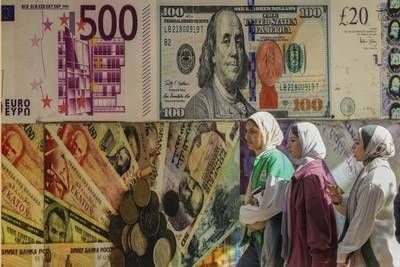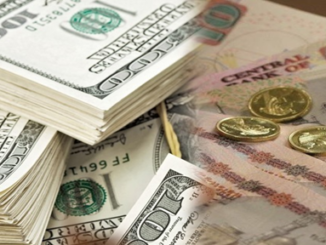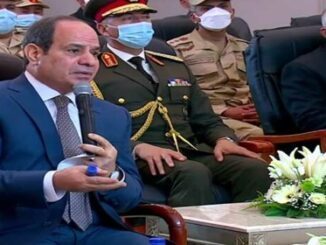
The UAE and Egypt have agreed to a currency exchange deal, which could help Egypt’s dire economic situation.
The central banks of the United Arab Emirates and the Arab Republic of Egypt agreed Thursday to a currency exchange deal, which could bolster the struggling Egyptian economy
A joint news release said the agreement would allow the two central banks to exchange up to 5 billion Emirati dirhams and 42 billion Egyptian pounds, or roughly the equivalent of $1.36 billion.
The Egyptian pound lost more than 50% of its value against the dollar in the last 18 months, and the country is suffering from a shortage of foreign currency. Egypt, the Middle East’s most populous country, is the world’s largest importer of grain. Its supplies traditionally have come from eastern Europe, so it has been hit hard by the fallout of the Ukraine war.
Last month Egypt’s annual inflation rate stood at 39.7%, more than double compared to the same month last year, when it recorded 15.3%.
Currency swap arrangements are usually deployed when nations are seeking to shore up central and domestic banks by providing them with extra liquidity in the form of a foreign currency.
“It seems again that the UAE is providing Egypt with financial support,” said James Swanston, an economist specializing in the Middle East and North Africa. “Egypt’s central bank needs more ammunition to prop up its currency.”
The UAE and the other gulf states have been chief backers of Egypt’s Abdel Fattah el-Sissi’s government since it came to power in 2013. Estimates suggest over $100 billion in Gulf money has gone to Cairo via Central Bank deposits, fuel aid and other support since then.
The heads of the Emirati and Egyptian central banks both said Thursday’s deal would enhance cooperation between the two allied countries, but gave few further details about the agreement.
Need for reform
Cash-strapped Egypt must speed up the pace of its reforms or make more “painful adjustments” to pluck its economy out of a deepening crisis, according to global investment banking group Goldman Sachs.
The Arab world’s most populous country is saddled with double-digit inflation and a growing currency crisis, putting immense strain on the economy.
“In our view, this leaves Egypt facing a stark choice: accelerate the implementation of a reform agenda or move towards further painful adjustment,” the investment bank said in a report released in April.
Egypt has already devalued its currency three times over the past year, allowing the pound to shed about 50 per cent of its value against the US dollar.
The devaluations have made little headway in alleviating a stubborn foreign currency crunch or attracting sufficient interest in its once-lucrative debt market.
Caused in large part by the fallout from the Russia-Ukraine war, Egypt is also facing double-digit inflation, which reached 31.9 per cent in February, mainly on the back of a steep increase in food prices.
Egypt’s Abdel Fattah al Sisi’s government has doggedly defended its economic policies, blaming the crisis entirely on the Russia-Ukraine war.
It has tirelessly used a narrative in which the country’s economic predicament is cast as inflicted on it by a global crisis in which it played no part.
But critics maintain that the crisis, at least in part, is the outcome of lavish spending on mega national projects that were either unnecessary or could have waited.
They also cite excessive borrowing and lack of transparency.



